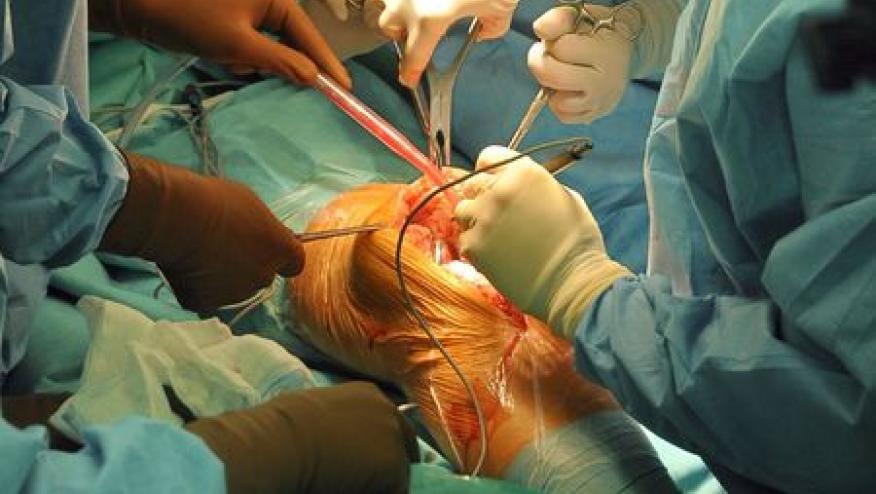No Increase in Infections with Pre-Op Infliximab Before Hip or Knee Replacement Save

Up to 30% of patients with rheumatoid arthritis (RA) will eventually undergo joint reconstructive surgery, yet we have limited data to guide the perioperative management of DMARDs and biologics.
This decision is often surgeon-dependent. Historically, RA patients have worse outcomes after joint replacement, but this was largely due to poor disease control prior to surgery.
In the current issue of Arthritis Care & Research, George, et al. looked at the effect of timing of infliximab dose prior to elective joint replacement and risk of serious infection post-op in a retrospective cohort study using Medicare claims data from 2006-2013.
Included patients were ≥ 18 with RA, inflammatory bowel disease, psoriasis, psoriatic arthritis or ankylosing spondylitis being treated with infliximab and had received their most recent infusion within 6 months prior to elective total hip or knee replacement. Patients with pre-existing infections were excluded.
The primary outcomes were serious infection within 30 days and prosthetic joint infection (PJI) within 1 year post-op. Using a propensity-adjusted analysis they found that of 4,288 surgeries performed in 3,867 patients, those receiving infliximab within 4 weeks or 4-8 weeks prior to surgery were not more likely to develop infection compared to patients who received infliximab 8-12 weeks pre-op (OR 0.90(95% CI 0.60-1.34) and OR 0.95% CI 0.62-1.36)). In a smaller group of patients (n=254), infliximab stop timing 2 weeks pre-op was also not associated with an increased risk of infection.
They also looked at average glucocorticoid dose 1 month prior to surgery and found that a dose > 10 mg was associated with increased risk of infection within 30 days (OR 2.11(95% CI 1.30-3.40)) and rate of PJI (HR 2.70(95% CI 1.30-5.60)). Other factors associated with infection risk were age > 80, higher Charlson comorbidity index, hospitalization for infection in the prior year and lower surgeon volume. Concomitant DMARD use as not associated with infection or PJI.
Limitations of this study include its retrospective nature and lack of data on disease activity at the time of surgery. Poor disease control pre-op can also contribute to poor surgical outcomes.
Overall, these results may help us to feel more comfortable holding TNF inhibitors closer to the time of surgery. Currently in the works are the first ever joint recommendations from the ACR and the American Associated of Hip and Knee surgeons for the perioperative management of rheumatic disease medications in total hip and knee replacements are expected to be out later this year.










If you are a health practitioner, you may Login/Register to comment.
Due to the nature of these comment forums, only health practitioners are allowed to comment at this time.